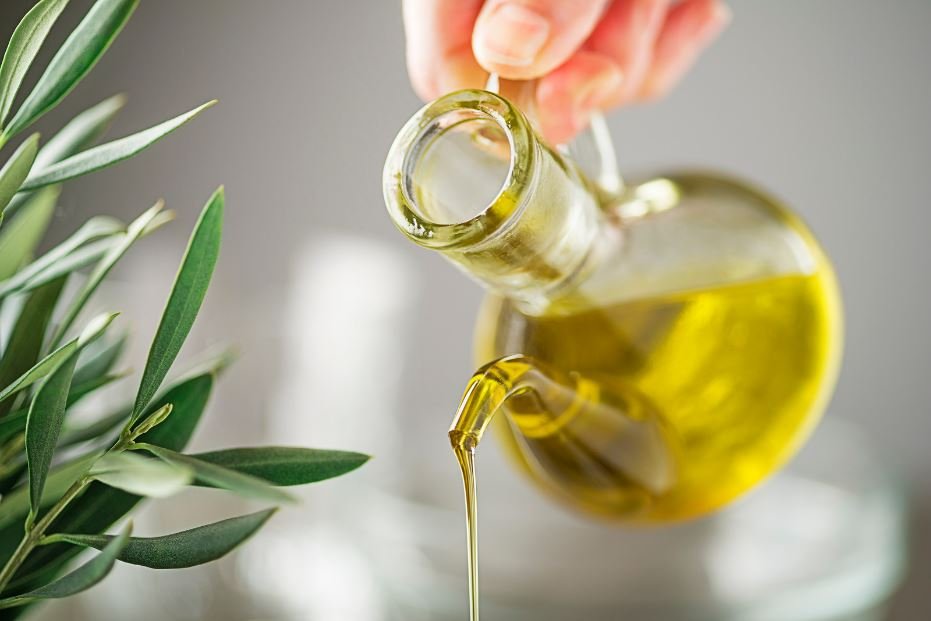The 3 Oils You Need in Your Kitchen
There’s a lot of confusion on the topic of oils and which ones are considered healthy, how to use them and for what purpose, which ones to cook with vs. which ones to only use cold… the list goes on. My goal with this post is to show you it doesn’t have to be so complicated and there are really only three that you need to keep in your pantry if you’re trying to simplify your ingredients.
EXTRA VIRGIN OLIVE OIL
For the most part, everyone knows that olive oil is a healthy oil, but it is easy to end up with a poor quality one if not properly sourced and stored. Try to buy olive oil in a dark glass bottle, ideally one that says “extra virgin” and “single source” on the label. Keep it in a cool place where it is not exposed to sunlight in order to prevent rancidity.
EVOO is rich in monounsaturated fat and is a good source of Vitamins E and K, which are fat-soluble vitamins. Olive oil is great for us in a natural, raw, cold-pressed state and should not be overheated. However, it can be used in cooking up to its smoke point which is around 410F. Once it reaches its smokepoint, the monounsaturated fat begins to break down and oxidize. In short, this oxidation can encourage the release of carcinogens. Stick to olive oil for low to medium health cooking, your salad dressings or drizzle it over an already-cooked meal.
AVOCADO OIL
This is an incredible oil for cooking in as its smoke point is 520F! That being said, it can get much hotter than other oils before it begins to break down, so you are able to maintain the healthy fats and benefits of the oil. Avocado oil is rich in oleic acid, a very healthy fat that is also a monounsaturated omega-9 fatty acid, and has been shown to reduce cholesterol, blood pressure, inflammation, and joint pain. Avocado oil is also great in salad dressings, but its best property is that it can be used for cooking. I don’t love the flavor plain, so I mostly use it for cooking. Beware though! A recent study showed that many avocado oil brands aren’t pure and are in fact mixed with cheaper inflammatory oils. I recommend the brand Chosen Foods for your avocado oil.
UNREFINED COCONUT OIL
This is a great oil for baking as it is a perfect substitute for butter (if you can’t tolerate dairy). Coconut oil is also rich in monounsaturated fats and medium-chain triglycerides (MCTs). In short, MCTs are shorter in chain length making them more rapidly broken down and absorbed into the body. This means they’re a quick energy source and less likely to be stored as fat. The smoke point of coconut oil is around 350F making it great for baking or using it raw. Coconut oil can also be great for the skin and hair (if you aren’t acne prone), just to name a few of its many uses. The two types are refined and unrefined. Refined is more processed and flavorless. I always opt for unrefined which has a delicious coconut taste.
While coconut oil does not contain fat-soluble vitamins or minerals, it will help you to better absorb fat-soluble vitamins and minerals when paired with foods that contain them, such as vegetables. When sourcing coconut oil, look for certified organic and fair-trade option. When possible, virgin is best as it’s minimally processed therefore higher in antioxidants.
Want to really up the nutrient density of your cooking fats? The following animal based fats are incredibly rich in vitamins and minerals.
Grass-fed butter and ghee: If opting for grass-fed, these are incredibly nutrient-dense fat sources. Ghee is clarified butter, so great for those who are lactose intolerant. Butter is best used in baking and low heat cooking as its smoke point is around 300F. (Note: It’s fine to bake with butter in an over higher than 300F. You just don’t want the internal temperature exceeding 300. Ghee has a very high smoke point around 450F so this is great for high heat cooking.
Tallow is the rendered fat from ruminant animals. This is another great option and works well for high heat cooking and frying.
Lard is the rendered fat from pork. It is great for sautéing, moderate heat cooking and frying. Its smoke point is 375F.
Remember, you are what you eat eats. If using butter, tallow and lard, it’s essential to use grass-fed, pasture-raised products.
Oils to Avoid at All Costs
Canola Oil
Corn Oil
Cottonseed Oil
Rapeseed Oil
Safflower Oil
Soybean Oil
Sunflower Oil
Anything marketed as a Vegetable Oil
These oils, often marketed as “vegetable oil,” are highly processed and chemically extracted from genetically modified crops using hexane, which is a neurotoxic petrochemical. The consumption of these highly inflammatory oils can lead to an imbalance in your omega 6 to 3 ratio.
These oils are incredibly prone to oxidative rancidity and are easily damaged through processing, heating and storing. As these oils break down, they become rancid and release free radicals - atoms and molecules that react with healthy cells in a toxic way. This causes cellular damage, or oxidative stress, which contributes to chronic diseases such as cardiovascular disease, cancer, diabetes, autoimmune disorders, obesity and many more.

